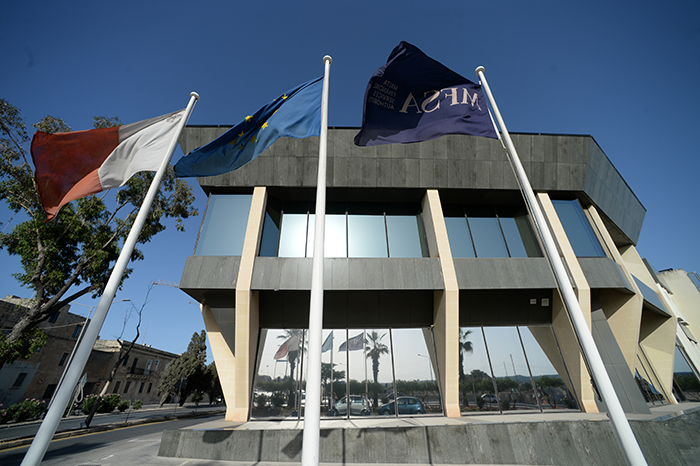Malta’s aviation sector is registering growth “across the board”, according to Transport Minister Ian Borg, as it benefits from the effects of Brexit and “modern, up-to-date” systems.”
Although the COVID-19 pandemic hit aviation hard, total aircraft movements between June and September 2021 increased by almost 90 per cent when compared to the same period in 2020 – testament to the sector’s resilience and Malta’s advantageous positioning.
Before the emergence of the COVID-19 pandemic, the aviation sector contributed to no less than €600 million towards the Maltese economy, and in 2019 carried over seven million passengers. The sector supports over 5,000 in direct employment.
Despite this challenging period, the sector is gradually regaining traction.
“We are seeing the advantage of being within a European system,” says BizAv founder Philip Apap Bologna. “The fact that Malta forms part of the European Aviation Safety Agency (EASA), through which all European Union member states follow a common set of rules, means that we have access to a lot more expertise and information. In fact, the UK’s withdrawal from EASA is already causing a lot of difficulties.”
Being a member of EASA allows aircraft and airlines certain freedoms of movement in terms of operation. Maltese aircraft can operate internally within EU states – which enables a company like Air Malta to operate flights between Italian cities, for example.
“UK operators can’t do that,” explains Captain Apap Bologna. “It requires bilateral agreements between each country. But for EU member states, EU skies are free skies.”
Thanks to the country’s historic links with the UK, with impacts on language, accountancy system, and commercial law, Malta is a very attractive jurisdiction offering modern, up-to-date systems for those UK-based companies wishing to relocate within the EU.
“Even in the registration of aircraft, Malta offers a great value proposition. It’s not only EU rules at play – individual countries have a lot of leeway in setting up their national systems in things like reaquiring aircraft if they’re leased.”
As Malta continues along its path of becoming a key aviation jurisdiction, Captain Apap Bologna sees the potential for aviation-related services to also set up shop locally.
“The aviation sector goes far beyond flying aircraft. For example, our company provides auditing, safety management, compliance, recruitment. These things are fundamental to a healthy ecosystem within a jurisdiction.”
BusinessNow.mt also reached out to Minister for Infrastructure, Transport and Capital Projects Ian Borg to see how the Government’s approach to the sector is helping it grow.
Minister Borg points out that Malta has climbed up the table of Cape Town compliance index and has the 7th highest score, a result which he says “gives peace of mind to lessors and owners”.
“One of the main contributors for this growth is the Civil Aviation Directorate, which has become the preferred regulator for many companies. We remain rooted to the ground aiming to continue attracting more new operators to our skies and at the same time supporting our present ones for further growth and upscaling. More importantly, we aim to focus on keeping up the quality of our services.”
The Government’s recently launched vision for the Maltese aviation sector is “geared towards reaping the best possible share of the forecast global aviation growth, and seeks to ensure that throughout the coming nine years the Maltese aviation sector not only recovers and relaunches from the backlash of the COVID-19 pandemic, but continues to develop and prosper”.
The policy identifies five broad long term strategic objectives and over 20 tactical measures to ensure an economic and environmental sustainable sector.
“It will aim to help to enhance the economic benefits deriving from a thriving civil aviation sector, exploit the potential of new and emerging sectors, strengthen the critical role of aviation in terms of connectivity with continental land masses, and tackle pre-existing conditions such as congestion and carbon footprint,” continues the Minister, adding that the final aviation policy will be launched “in the coming weeks.”
“After the onset of COVID, our aircraft registry continued to grow and we surpassed our expectations. The registry has now topped the 640 units. The directorate is registering near an aircraft every other day and has seen an increase from the lessors also. There are currently 10 AOC applications, and other training organisations have submitted their applications.”
Meanwhile, the Civil Aviation Directorate has ventured into certification of synthetic flight devices and is very active in the unmanned aircraft sector.
The Minsiter also notes that drone applications are all done online, and the Civil Aviation Directorate has just launched an online portal for applications of private jets flying to and from Malta to speed up the process.
One of the key bottlenecks for Malta’s aviation sector is banking, with operators reporting waiting periods of up to six months to open an account. Asked what his ministry is doing to solve this problem, Minister Borg declines to answer, but points out that efforts are ongoing to implement a one stop, efficient company registration, to eliminate the need of submitting the same documents to various Government units.
“The system will be accessible to Government departments who will have visibility of the company documents and would be able to download directly,” he says.
Trust, talent and transformation: The Malta Institute of Accountants’ vision for growth
CEO Maria Cauchi Delia believes accountants are ‘the bedrock of trust in Malta’s economy’
MFSA to ‘step up’ supervision of AI in financial services
Regulatory strategy is no longer just a compliance function
Teva Malta defends pay offer as GWU orders industrial action at Bulebel plant
The union said the decision to commence industrial action 'was not taken lightly,' but followed months of unsuccessful negotiations






